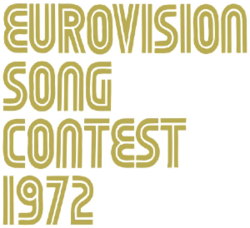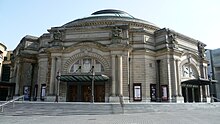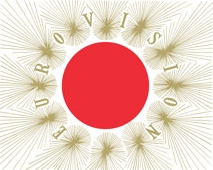
The Eurovision Song Contest 1969 was the 14th edition of the annual Eurovision Song Contest. It took place in Madrid, Spain, following the country's victory at the 1968 contest with the song "La La La" by Massiel. Organised by the European Broadcasting Union (EBU) and host broadcaster Televisión Española (TVE), the contest was held at the Teatro Real on 29 March 1969 and was hosted by Spanish television presenter and actress Laurita Valenzuela.

The Eurovision Song Contest 1968 was the 13th edition of the annual Eurovision Song Contest. It took place in London, United Kingdom, following the country's first victory at the 1967 contest with the song "Puppet on a String" by Sandie Shaw. Despite having won for the first time the year before, it was actually the third time that the United Kingdom had hosted the competition, having previously done so in 1960 and 1963, both of which also took place in London. Organised by the European Broadcasting Union (EBU) and host broadcaster British Broadcasting Corporation (BBC), the contest was held at Royal Albert Hall on 6 April 1968, and was hosted by Katie Boyle for the third time. It was notably also the first time that the contest was broadcast in colour.
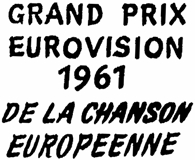
The Eurovision Song Contest 1961 was the 6th edition of the annual Eurovision Song Contest. Once again, the contest was held in the French seaside city of Cannes, having also hosted the 1959 edition. Organised by the European Broadcasting Union (EBU) and host broadcaster Radiodiffusion-Télévision Française (RTF), the contest was again held at the Palais des Festivals et des Congrès on Saturday 18 March 1961, becoming the first contest to take place on a Saturday evening, a tradition that has continued ever since. The show was directed by Marcel Cravenne and again hosted by Jacqueline Joubert, who had also hosted in 1959.
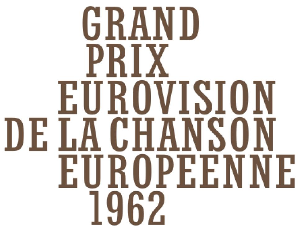
The Eurovision Song Contest 1962 was the 7th edition of the annual Eurovision Song Contest. It took place in Luxembourg City, Luxembourg, following the country's victory at the 1961 contest with the song "Nous les amoureux" by Jean-Claude Pascal. The contest was organised by the European Broadcasting Union (EBU) and host broadcaster Compagnie Luxembourgeoise de Télédiffusion (CLT), and was held at the Villa Louvigny on Sunday 18 March 1962 hosted by the Luxembourgish speaker Mireille Delannoy. This remains the last time that the final of the contest was not held on a Saturday, as since 1963 the final of the contest has consistently been held on a Saturday evening.
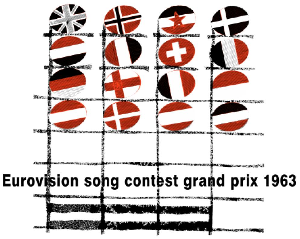
The Eurovision Song Contest 1963 was the eighth edition of the annual Eurovision Song Contest and took place in London, United Kingdom. It was organised by the European Broadcasting Union (EBU) and host broadcaster British Broadcasting Corporation (BBC), who agreed to stage the event after France, who had won the 1962 edition, declined to host it due to financial shortcomings, also having hosted the competition in 1959 and 1961. The contest was held at the BBC Television Centre on Saturday 23 March 1963 and was hosted by Katie Boyle for a second time.

The Eurovision Song Contest 1966 was the 11th edition of the annual Eurovision Song Contest. It took place in Luxembourg City, Luxembourg, following the country's victory at the 1965 contest with the song "Poupée de cire, poupée de son" by France Gall. Organised by the European Broadcasting Union (EBU) and host broadcaster Compagnie Luxembourgeoise de Télédiffusion (CLT), the contest was held at the Villa Louvigny on 5 March 1966 and was hosted by Luxembourgish television presenter Josiane Chen.

The Eurovision Song Contest 1970 was the 15th edition of the annual Eurovision Song Contest and took place in Amsterdam, Netherlands. Organised by the European Broadcasting Union (EBU) and host broadcaster Nederlandse Omroep Stichting (NOS), the contest was held at the RAI Congrescentrum on 21 March 1970, and was hosted by Dutch television presenter Willy Dobbe.

The Eurovision Song Contest 1971 was the 16th edition of the annual Eurovision Song Contest. It took place in Dublin, Ireland, following the country's victory at the 1970 contest with the song "All Kinds of Everything" by Dana. Organised by the European Broadcasting Union (EBU) and host broadcaster Radio Telefís Éireann (RTÉ), the contest was held at the Gaiety Theatre on 3 April 1971, and was hosted by Irish television presenter Bernadette Ní Ghallchóir.
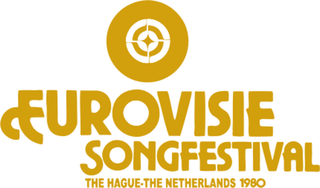
The Eurovision Song Contest 1980 was the 25th edition of the annual Eurovision Song Contest. It took place in The Hague, Netherlands, and was organised by host broadcaster Nederlandse Omroep Stichting (NOS) – which agreed to stage the event after Israel, having won in both 1978 and 1979, declined to host it for a second successive year – and the European Broadcasting Union (EBU). The contest was held at the Nederlands Congresgebouw on 19 April 1980 and was hosted by Dutch actress Marlous Fluitsma, although each song was introduced by a presenter from the participating nation.

The Eurovision Song Contest 1979 was the 24th edition of the annual Eurovision Song Contest. It took place in Jerusalem, Israel, following the country's victory at the 1978 contest with the song "A-Ba-Ni-Bi" by Izhar Cohen and the Alphabeta. Organised by the European Broadcasting Union (EBU) and host broadcaster Israeli Broadcasting Authority (IBA), the contest was held at the International Convention Centre on 31 March 1979 and was hosted by Israeli television presenter Daniel Pe'er and singer Yardena Arazi. This was the first time that the Eurovision Song Contest was held outside Europe.

The Eurovision Song Contest 1973 was the 18th edition of the annual Eurovision Song Contest. It took place in Luxembourg City, Luxembourg, following the country's victory at the 1972 contest with the song "Après toi" by Vicky Leandros. Organised by the European Broadcasting Union (EBU) and host broadcaster Compagnie Luxembourgeoise de Télédiffusion (CLT), the contest was held at the Grand Théâtre on 7 April 1973 and was hosted by German television presenter Helga Guitton.

The Eurovision Song Contest 1974 was the 19th edition of the Eurovision Song Contest, held on 6 April 1974 in the Dome in Brighton, United Kingdom. Organised by the European Broadcasting Union (EBU) and host broadcaster the British Broadcasting Corporation (BBC), and presented by Katie Boyle, this was the fifth time that the United Kingdom had staged the contest.

The Eurovision Song Contest 1978 was the 23rd edition of the annual Eurovision Song Contest. It took place in Paris, France, following the country's victory at the 1977 contest with the song "L'Oiseau et l'Enfant" by Marie Myriam. Organised by the European Broadcasting Union (EBU) and host broadcaster Télévision Française 1 (TF1), the contest was held at the Palais des Congrès on 22 April 1978 and was directed by Bernard Lion. The contest was presented by French television presenters Denise Fabre and Léon Zitrone. This was the first time that more than one presenter had hosted the contest as well as the first to have a male presenter since 1956.

The Eurovision Song Contest 1977 was the 22nd edition of the annual Eurovision Song Contest. It took place in London, United Kingdom, following the country's victory at the 1976 contest with the song "Save Your Kisses for Me" by Brotherhood of Man. Organised by the European Broadcasting Union (EBU) and host broadcaster British Broadcasting Corporation (BBC), the contest was held at the Wembley Conference Centre on 7 May 1977, marking the first time the event took place in the month of May since the first contest in 1956. The contest was directed by Stewart Morris and hosted by English journalist Angela Rippon.
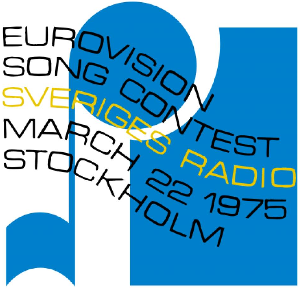
The Eurovision Song Contest 1975 was the 20th edition of the Eurovision Song Contest, held on 22 March 1975 in the Sankt Eriks-Mässan in Stockholm, Sweden. Organised by the European Broadcasting Union (EBU) and host broadcaster Sveriges Radio (SR), and presented by Karin Falck, the contest was held in Sweden following the country's victory at the 1974 contest with the song "Waterloo" by ABBA.
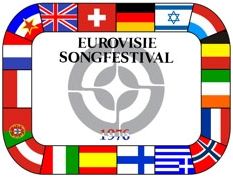
The Eurovision Song Contest 1976 was the 21st edition of the annual Eurovision Song Contest. It took place in The Hague, Netherlands, following the country's victory at the 1975 contest with the song "Ding-a-dong" by Teach-In. Organised by the European Broadcasting Union (EBU) and host broadcaster Nederlandse Omroep Stichting (NOS), the contest was held at the Nederlands Congrescentrum on 3 April 1976 and was hosted by 1957 Dutch Eurovision winner Corry Brokken.

Germany has officially participated in every Eurovision Song Contest since its inaugural edition in 1956, except in 1996 when its entry did not qualify past the audio-only pre-selection round, and consequently was not seen in the broadcast final and does not count as one of Germany's 66 appearances. No other country has been represented as many times. Along with France, Italy, Spain and the United Kingdom, Germany is one of the "Big Five" countries that are automatically prequalified for the final, due to being the largest financial contributors to the European Broadcasting Union (EBU). The final is broadcast in Germany on ARD's flagship channel, Das Erste.

Luxembourg has participated in the Eurovision Song Contest 38 times since its debut at the first contest in 1956. The nation participated in all but one event between 1956 and 1993, only missing the 1959 contest. After finishing among the bottom seven countries in 1993, Luxembourg was relegated and prevented from competing in 1994. The nation did not return to the contest in 1995, and would make no further appearances over the next three decades. The country returned to the event for the first time in 31 years in 2024, qualifying for the final.

The United Kingdom has participated in the Eurovision Song Contest 66 times. Its first participation was at the second contest, in 1957, and it has entered every year since 1959. The country has won the contest five times: in 1967, with Sandie Shaw and the song "Puppet on a String"; in 1969, with Lulu and the song "Boom Bang-a-Bang"; in 1976, with Brotherhood of Man and the song "Save Your Kisses for Me"; in 1981, with Bucks Fizz and the song "Making Your Mind Up"; and in 1997, with Katrina and the Waves and the song "Love Shine a Light". The UK has also achieved a record sixteen second-place finishes, the first in 1959 and the most recent in 2022.
Belgium was represented by Serge and Christine Ghisoland, with the song "À la folie ou pas du tout", at the 1972 Eurovision Song Contest, which took place in Edinburgh on 25 March. "À la folie ou pas du tout" was the winner of the Belgian national final for the contest, held at the RTB studios in Brussels on 15 February. The Ghisolands had previously participated in the Belgian final in 1970.
